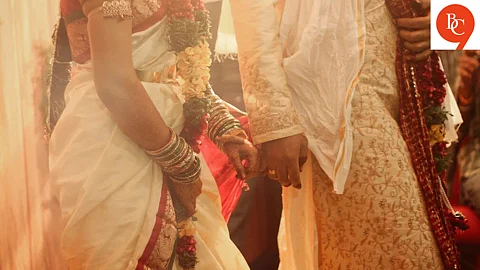

Once seen as polar opposites — one rooted in individual freedom, the other in family intervention — modern dating and arranged marriage now exist on a continuum. In cities like Mumbai, Delhi, Bangalore, and Pune, the idea of love has quietly reshaped the way we arrange marriages.
From Matrimonials to Matchmaking Apps
The traditional arranged marriage once meant biodatas, horoscopes, and shy meetings in drawing rooms. Today? It might begin on Shaadi.com, Bumble, or even LinkedIn. Yes, LinkedIn.
Young Indians are using platforms where caste, career, compatibility, and attraction all intersect. Families still initiate the process in many cases, but the final choice lies with the individual.
The Rise of "Self-Arranged" Marriages
Call it semi-arranged, assisted love, or curated companionship — many modern marriages now fall somewhere in between.
Here’s what that looks like:
Parents suggest a match, but the couple date like any modern couple for months or even years.
Apps like Aisle and Betterhalf are marketed as "serious dating" platforms — a middle ground between Tinder’s casual flings and Shaadi.com’s pressure.
Therapists and relationship coaches are increasingly involved before and after weddings — unheard of in older arranged setups.
Psychology of the Shift: What’s Causing It?
Urban Independence: More people are moving away from home for work and education, giving them space to define relationships.
Dating App Fatigue: Many are tired of endless swiping and non-committal situationships. Arranged setups bring clarity and intention.
Emotional Maturity: 30 is the new 25. Young Indians are getting married later and are more emotionally aware.
Family Involvement 2.0: Today’s families are less dictatorial, more advisory. Many Gen Z parents themselves had semi-arranged marriages in the '90s.
What's Staying the Same?
Despite all the change, societal biases still linger:
Caste and community filtering is common, even on dating apps.
Women often feel pressure to conform to timelines set by family.
Sexual freedom, mental health history, and past relationships are still taboo topics in many arranged setups.
So yes, the gap is closing — but slowly, and unevenly.
The Future of Love in Urban India
Expect more:
Matchmaking consultants who blend astrology with psychological profiling.
AI-powered compatibility testing built into dating platforms.
Pre-marital therapy becoming mainstream (especially among urban millennials).
Queer matchmaking networks, now rising in metros like Mumbai and Bangalore.
Whether love is found over coffee or choreographed over months, the end goal is now the same: mutual growth, respect, and real connection.
Modern love and arranged marriage aren’t enemies — they’re evolving together. In today’s India, your soulmate might come via a mutual friend, a marriage bureau, or your mom’s WhatsApp group.
In the end, the labels matter less than the love you build.
